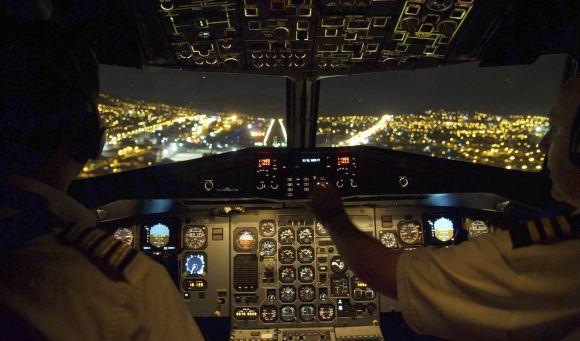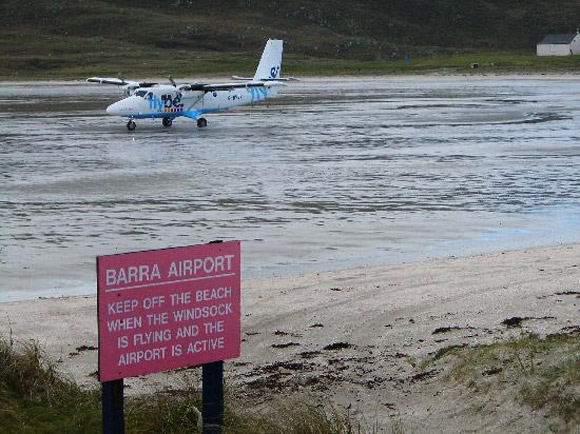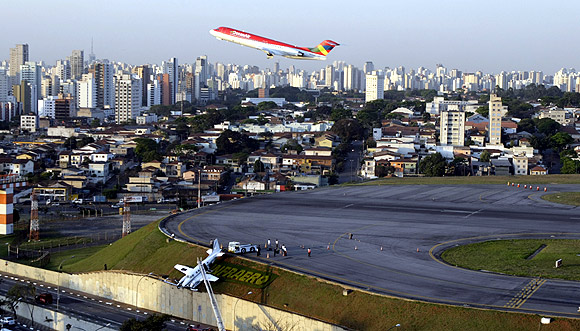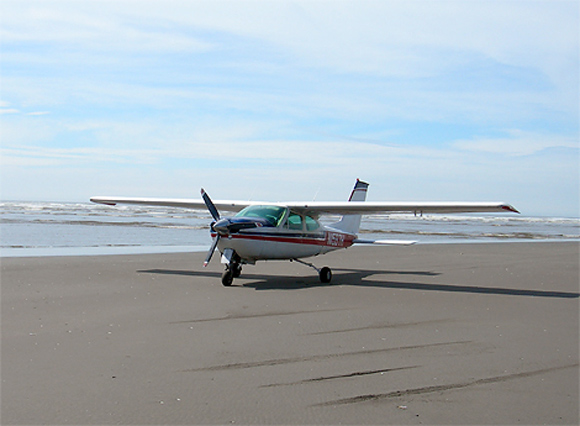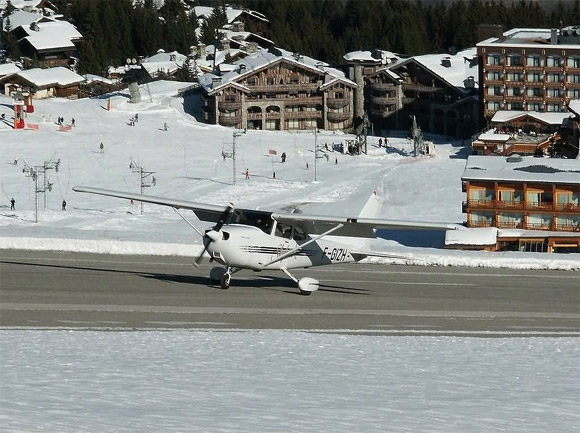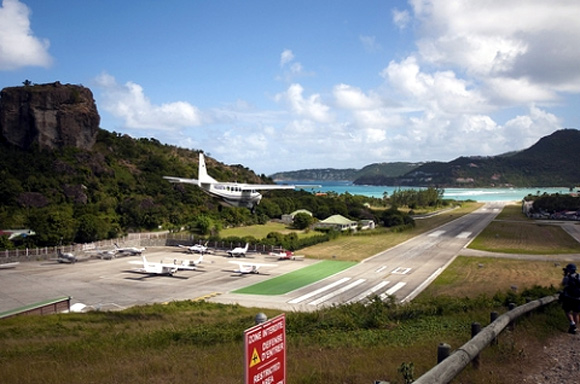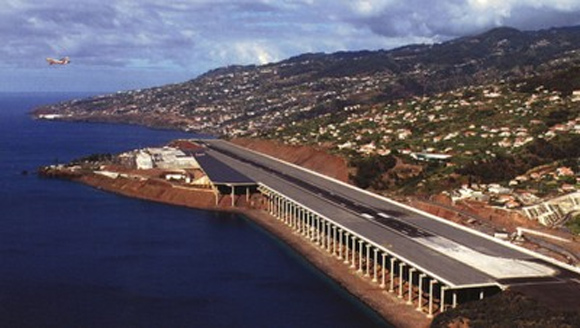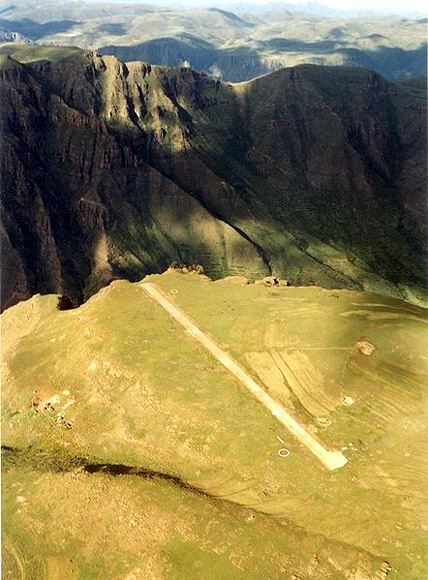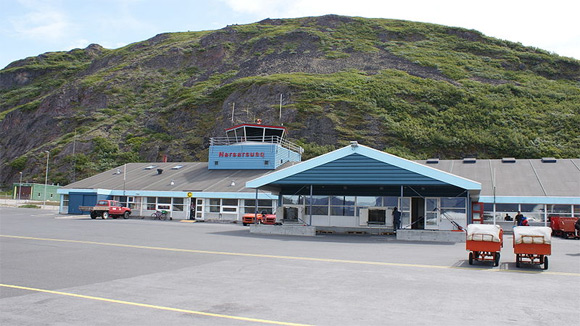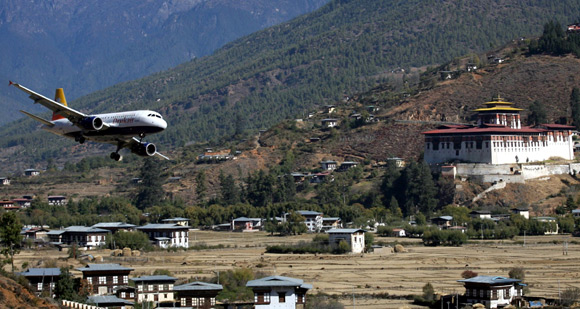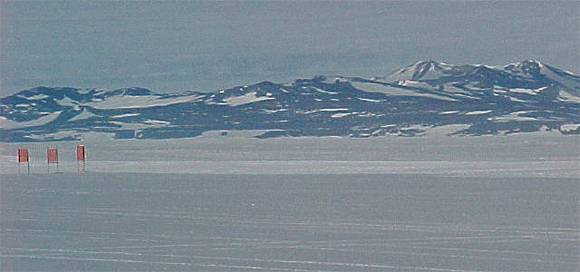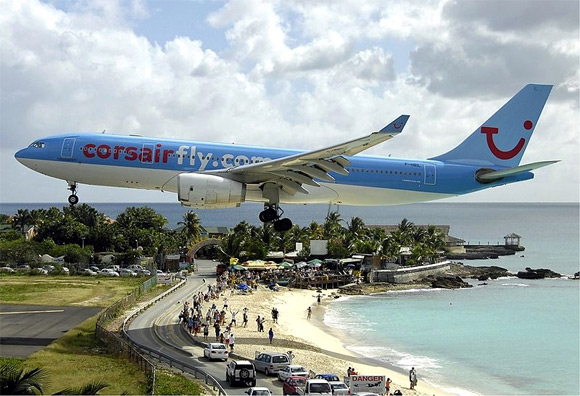 | « Back to article | Print this article |
In PIX: RUNWAYS from hell; have a scary flight
Some people just hate flying. The fear is so extreme sometimes that it can cause panic attacks, and at times, even vomiting at the mere sight of an aircraft.
Though flying can be scary for some, gizmodo.com reports that 60 per cent of all aircraft incidents occur either during taxiing, take-off, approach or landing. This makes the conditions at airports significant.
Let's look at some of the most spine-chilling runways across world. Taxiing on these runways is not for the fainthearted.
Click NEXT to see more PHOTOS...
Barra Airport
Situated in the wide shallow bay of Traigh Mhor at the north tip of the island of Barra in Scotland, the Barra airport is unique. It is the only one in the world where scheduled flights use a beach as the runway.
Click NEXT to see more PHOTOS...
Chubu Centrair International Airport
Chubu Centrair International Airport is an airport on an artificial island in Ise Bay, Tokoname City in Aichi Prefecture, in central Japan.
Click NEXT to see more PHOTOS...
Congonhas Airport
The Congonhas Airport is one of the three commercial airports serving Sao Paulo in Brazil.
Click NEXT to see more PHOTOS...
Copalis State Airport
Copalis State Airport is located on the beach near Copalis Beach, in Washington, United States.
It is the only airport in the United States that is located on an ocean beach.
The runway is a 4,500-foot stretch of ocean beach from the Copalis River. It is only available during low tide.
Click NEXT to see more PHOTOS...
Courchevel Airport
Courchevel Airport is a French airport that serves Courchevel, which is located in a ski area in the French Alps mountains. The airport has a very short runway of only 1,722 ft. There is no go-around procedure for this airport.
The airport is considered dangerous as it features a difficult approach, an upslope runway and an adjacent area that is the location of ski runs.
The History Channel program 'Most Extreme Airports', ranked it as the 7th most dangerous airport in the world.
The airport was featured in the opening sequence of the James Bond film 'Tomorrow Never Dies'.
Click NEXT to see more PHOTOS...
Gibraltar Airport
Winston Churchill Avenue (the main road heading towards the land border with Spain) intersects the airport runway, and consequently has to be closed every time a plane lands or departs.
The History Channel programme 'Most Extreme Airports' ranks it as the fifth most dangerous airport in the world and the most dangerous in Europe.
Click NEXT to see more PHOTOS...
Gustaf III Airport
The short airstrip is at the base of a gentle slope ending directly on the beach. The arrival descent is extremely steep over the hilltop traffic circle and departing planes fly right over the heads of sunbathers (although small signs advise sunbathers not to lie directly at the end of the runway).
The airport is located in the island's second-largest town, St. Jean.
The History Channel programme 'Most Extreme Airports' ranks Gustaf III airport, which is casually referred to as 'St. Barth's', as the 3rd most dangerous airport in the world.
Click NEXT to see more PHOTOS...
Madeira Airport
The airport was once infamous for its short runway which, surrounded by high mountains and the ocean, made it a tricky landing for even the most experienced of pilots. The original runway was only 5,249 ft long, but was extended by 656 ft 8 years after the TAP Portugal Flight 425 incident of 1977 and subsequently rebuilt in 2000, almost doubling the size of the runway.
The History Channel program 'Most Extreme Airports' ranked it as the 9th most dangerous airport in the world, and the second most dangerous in Europe after Gibraltar International Airport.
Click NEXT to see more PHOTOS...
Matekane Air Strip
Matekane Air Strip is an airport in Lesotho, Africa with a 1,300 ft runway that extends to the edge of a 2,000 ft cliff. The airport is often used by charity organisations and doctors to access remote villages in the area, and is labeled as having one of the world's scariest runways.
Click NEXT to see more PHOTOS...
Narsarsuaq Airport
The airfield at Narsarsuaq was first built by the American Department of Defence (then known as the War Department) as an army airbase, its construction beginning in July 1941 and the first aircraft landing in January 1942.
Click NEXT to see more PHOTOS...
Paro International Airport
Paro Airport is the only international airport of Bhutan. The airport is located 6 km from Paro in a deep valley on the bank of the river Paro Chhu at an elevation of 7,300 ft.
With surrounding peaks as high as 18,000 ft it is considered one of the world's most challenging airports.
Flights at Paro are allowed under visual meteorological conditions only and are restricted to daylight hours from sunrise to sunset.
Click NEXT to see more PHOTOS...
Pegasus White Ice Runway
Pegasus White Ice Runway is an airstrip in Antarctica, the southernmost of three airfields serving McMurdo Station. Pegasus is a blue ice runway capable of handling wheeled aircraft year-round. The other two are the snow runways at Williams Field that is limited to ski-equipped aircraft, and the principal Ice Runway on the sea-ice available during the summer Antarctic field season.
Click NEXT to see more PHOTOS...
Princess Juliana International Airport
This airport has the landing strip extremely close to the shore and a beach, resulting in very low-altitude flyovers.
Because the approach to Runway 10 is over water, pilots do become disoriented regarding their perceived altitude when operating under visual flight rules. Normal instrument checks, coupled with experience and situational awareness, mitigate potential problems. The departure from Runway 10 presents more "difficulties" than the approach, with a turn required to avoid mountains in the departure path.
TOP photo features of the week
Click on MORE to see another set of PHOTO features...
